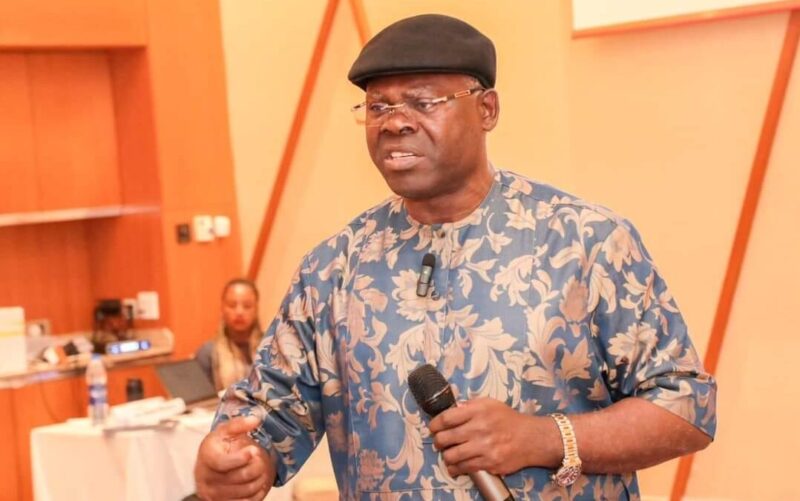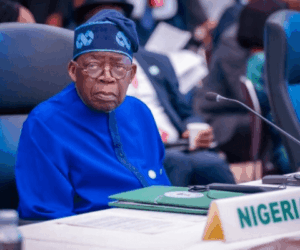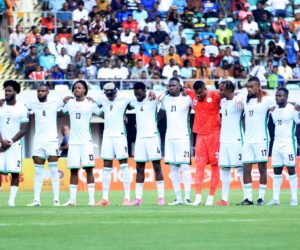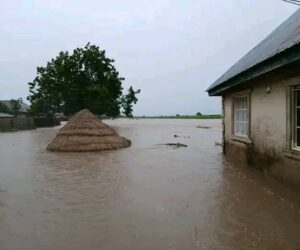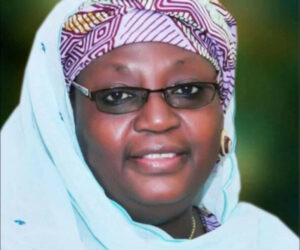A former member of the House of Representatives, Nicholas Ossai has warned that the National Assembly risks reducing itself to a rubber-stamp institution unless it asserts its constitutional mandate in scrutinising loan agreements.
His remarks came just a day after the Speaker of the House, Abbas Tajudeen, raised alarm that the country’s total public debt has climbed to about ₦149 trillion, warning of the dangers of excessive borrowing.
Mr Ossai spoke in Abuja on Tuesday at the 11th Annual Conference and General Assembly of the West Africa Association of Public Accounts Committees (WAAPAC), which has as its theme “Strengthening Parliamentary Oversight of Public Debt: The Role of Finance and Public Accounts Committees.”
Delivering a paper titled “Parliamentary Approaches to Loan Agreements: Approval, Scrutiny and Disclosures in Nigeria,” the former lawmaker said Nigeria’s debt situation, estimated at over ₦97 trillion by mid-2025, was already straining fiscal space and raising questions of sustainability, transparency, and accountability.
According to him, while constitutional provisions and statutory laws place the National Assembly at the centre of public financial management, the reality is that its oversight role in borrowing has been weak, procedural, and largely reactive.
“Despite the provisions of the 1999 Constitution and the Fiscal Responsibility Act of 2007, parliamentary involvement in debt contracting is often perceived as procedural and reactive, rather than strategic and oversight-driven.
“The opacity surrounding loan terms, particularly from non-traditional lenders, raises serious concerns about disclosure standards and the quality of legislative scrutiny,” Mr Ossai stated.
Tajudeen’s earlier warning on unsustainable borrowing
On Monday, Mr Tajudeen had raised similar concerns while addressing the House on the first day of the conference.
He lamented that Nigeria’s public debt, standing at about ₦149 trillion, posed a serious threat to the economy if unchecked.
The speaker stressed that while borrowing is a legitimate instrument for financing development, the pace and pattern of Nigeria’s debt accumulation was troubling and must be addressed urgently.
“In Nigeria, recent available data indicate that our debt profile has reached ₦149 trillion. This trajectory is not sustainable if borrowing is not tied to revenue growth, accountability, and measurable development outcomes,” Mr Tajudeen said.
He added that the House would work more closely with its committees to intensify oversight on how loans are negotiated, approved, and utilised, warning that the legislature could no longer act as a silent bystander in the debt process.
Weak oversight and underutilised committees
Mr Ossai, who served on critical financial oversight committees during his time in the House including chairing the committee on Treaties, Protocols and Agreements, said Nigeria’s legal framework clearly envisages an active legislative role in debt management.
He stressed that sections 80 to 84 of the Constitution place control of public funds under the National Assembly, while Section 214 empowers it to regulate economic matters, including borrowing.
Similarly, the Fiscal Responsibility Act, according to him, makes legislative approval a prerequisite for loan agreements and requires that the full terms, including repayment schedules and disbursement plans, be disclosed.
Yet, he lamented, these powers have not been effectively utilised.
He noted that in practice, most borrowing requests arrive at the National Assembly only after negotiations have been concluded by the executive, leaving lawmakers with little room to amend or reject unfavourable agreements.
He stressed that this undermines transparency and accountability, while exposing Nigeria to opaque deals that may mortgage future revenues.
Mr Ossai also identified institutional weaknesses, particularly the underutilisation of key committees such as the House Committee on Treaties, Protocols and Agreements, which should be at the forefront of reviewing international agreements before ratification.
Other committees, including the Finance Committees., the Public Accounts Committees (PACs), and the Committee on Aids, Loans and Debt Management, are central to scrutinising borrowing requests and auditing loan utilisation.
However, he said their work is often undermined by political influence, capacity gaps, and poor coordination.
Call for proactive parliamentary engagement
The former lawmaker who represented the Ndokwa/Ukwuani Federal Constituency of Delta State, argued that effective parliamentary oversight must extend beyond retrospective approval or audits.
He explained that it requires early involvement at different stages of the loan lifecycle, from the pre-approval stage, where lawmakers should scrutinise the purpose, terms, and sustainability of borrowing, to the approval stage, which ought to involve public hearings and broader stakeholder consultations.
Post-approval oversight, he added, must not be neglected, as it is at this stage that committees such as the Public Accounts Committees can audit utilisation, demand reports, and conduct value-for-money assessments on debt-financed projects.
He called on the National Assembly to adopt reforms that would reposition it as a true co-guardian of Nigeria’s fiscal responsibility.
One key recommendation was the establishment of a Parliamentary Budget and Debt Office to provide lawmakers with independent analysis, reducing their reliance on executive-provided information.
He also urged Parliament to compel the executive to brief committees before finalising any loan negotiations, thereby ensuring that terms are not merely rubber-stamped.
Another major reform, Mr Ossai said, should be the institutionalisation of transparency through mandatory publication of loan agreements, repayment schedules, and disbursement plans within 30 days of approval.
Such a move, he argued, would not only boost public trust but also make it more difficult for loans to be mismanaged or diverted.
He warned that without stronger legislative intervention, future generations of Nigerians could be saddled with unsustainable debt obligations.
READ ALSO: Israel bombs Qatar’s capital, says Hamas leaders were targeted
He insisted that borrowing decisions must be tied directly to national development priorities and must undergo rigorous scrutiny to prevent them from becoming fiscal liabilities.
He said, “Strengthening parliamentary approaches to loan agreements is not merely a procedural necessity but a governance imperative.
“As Nigeria navigates an increasingly constrained fiscal environment, the National Assembly must assert its constitutional mandate to safeguard public finance and ensure that debt serves as a tool for inclusive and sustainable development.”

